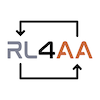Speaker
Description
As a critical radiological facility, the International Fusion Materials Irradiation Facility - DEMO Oriented Neutron Source (IFMIF-DONES) will implement effective measures to ensure the safety of its personnel and the environment. To enable the proper implementation of these measures, the ISO 17873 standard has been adopted throughout the design process of the facility. The proposed dynamic confinement measures outlined in this standard require a thorough design of the nuclear Heating, Ventilation and Air Conditioning (HVAC) system to ensure effective containment barriers, stable pressure levels and proper treatment of effluents. However, the design and control of such a critical system presents several challenges, as numerous factors influence pressure stability within the facility.
Despite these challenges, recent advances in Deep Reinforcement Learning (DRL) algorithms have demonstrated their effectiveness in solving complex continuous control problems in a variety of domains. In this work, we evaluate the performance of DRL algorithms in controlling the nuclear HVAC system of IFMIF-DONES. For this purpose, we use a MELCOR simulation model of the particle accelerator facility as a training environment and adapt the functionalities of this simulator to enable the continuous control of the air inlet flow rates.
| Possible contributed talk | Yes |
|---|---|
| Are you a student? | Yes |

